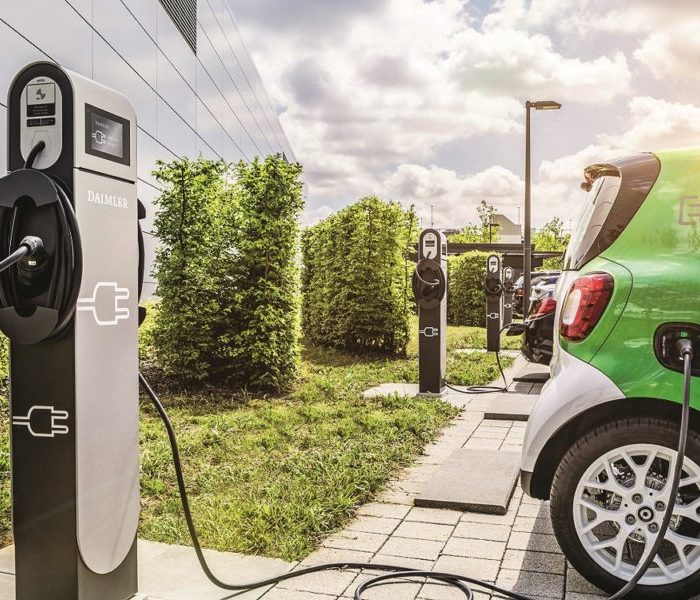
Eelectric vehicle charging station
Eelectric vehicle charging station, World transportation is on the verge of an extraordinary revolution and at its center will lie the electric vehicle (EV). As climate change and air pollution become ever more of a threat, these eco-friendly alternatives to conventional gasoline cars become an eco-friendly and sustainable choice compared to gasoline-powered ones. But for any revolutionary trend to truly succeed it must have strong infrastructure backing it – such as charging stations that play such an essential part. In this 2,000 word article we examine this aspect.
A. Exploration of Electric Vehicles (EVs)
Electric vehicles (EVs) have come a long way since their conception at the turn of this century, when primitive and limited capabilities first appeared on the market. Thanks to advances in battery tech, greater environmental consciousness, and government incentives, modern EVs are now driving change within their respective fields and the automobile industry at large is witnessing unprecedented expansion.
Electric vehicles of today offer more than green benefits; they also deliver amazing performance and offer consumers many choices. Leading automakers have invested significantly in developing electric vehicle technologies; some even plan on retiring traditional internal combustion engine (ICE) vehicles completely by investing further.
Infrastructure charging should not be overlooked as its importance cannot be overemphasized.
Although electric vehicles have experienced impressive advancement, their widespread adoption can be traced to access and availability to charging facilities. Charge stations for electric cars act like gas stations for conventional ones – helping alleviate “range anxiety”, an anxious condition in prospective EV buyers who fear running out of battery before reaching their final destination.
Here are just a few reasons that demonstrate its significance:
Convenience Charge stations must be accessible and convenient enough for owners of electric vehicles to charge up their cars effortlessly and quickly – this makes switching over easier for many people.
Security for Extended Range Travel A reliable charging system allows owners of electric vehicles to travel long distances with confidence that their battery won’t run out before reaching its destination.
Urban Adoption as cities grow and demand for sustainable transportation increases, so does their need for sustainable transport infrastructure such as charge points in urban environments to encourage residents to adopt electric vehicles while decreasing pollution levels.
Reduce Home Charge Dependency Not all electric vehicle (EV) owners have access to charging their devices at home; public charging stations offer vital assistance for those living in apartments or without direct garage entryways.
Also Read: what-is-process
Encouragement of Fleet Adoption. Businesses looking to adopt electric vehicles need access to reliable charging infrastructure that ensures uninterrupted functioning of vehicles.
Charging Stations come in all sorts of designs.
Knowledge of available EV charging stations with regard to capacity and charging speed is both relevant and useful for owners as well as managers of charging networks.
Charge Level 1. (120V AC):
Level 1 Charging Method :
This slowest charging method uses standard electrical outlets. Ideal for overnight charging and typically adding 2-5 miles per hour; in comparison, Level 2 Charging requires its own separate device and charges faster compared to Level 1. Whether at home or the office.
Fast charging can add 10-60 miles of range per hour depending on the power of the charger. DC Fast Charging (Direct Current):
Rapid charging options provide rapid range extension; typically situated along major highways or travel routes. At their maximum capability, rapid chargers can cover 1770 miles in just 30 minutes with special equipment that’s not suitable for regular charging needs. Station Network Operators Charge Station Network Operators
Creation and management of charging stations typically fall to various organizations such as:
Public Utilities: Some electric utilities play an active role in supporting the growing market for electric vehicles by offering incentives or rebates that encourage their adoption.
Private Companies Firms such as ChargePoint, EVgo and Electrify America operate charging networks throughout the US and globally, investing in building charging stations both urban and highway locations.
Automakers Many automakers recognize the significance of charging infrastructures and have taken measures to create their own networks of charging points for customers’ use, like Tesla with its Supercharger network available only to Tesla vehicle owners.
Government Initiatives Government agencies typically offer support and funding for charging station construction as part of an overall effort to lower carbon dioxide emissions and promote more eco-friendly transportation practices.
Also Read: what-is-quality-assurance-definition-and-overview
Solution and Challenges
While building out infrastructure to support electric vehicle charging is likely to bring advantages, it doesn’t come without its share of challenges:
Range Anxiety As we noted previously, electric vehicle buyers must deal with range anxiety. To counteract this risk, charging stations must be strategically positioned across an adequate region in order to provide ample coverage and alleviate this fear of running out of energy.
Speed of Charging While DC fast chargers offer rapid charges, not all automobiles can use these chargers. Therefore, making sure the compatible and accessible with various types of chargers is key.
Infrastructure costs: An investment is necessary in constructing an effective charging network. Government incentives or public-private partnerships may help mitigate some of these expenses.
Standardization The industry must urgently standardize chargers and protocols so all EVs can easily use charging stations. Although progress has been made here, more harmonization needs to occur for optimal operation of all charging stations.
Environment Impact The energy that powers electric cars must come from renewable and clean sources in order to maximize their positive environmental impacts.
Future Perspectives
Charging stations for electric vehicles appear promising and many innovations are underway:
Greater coverage As the adoption of electric vehicles accelerates, it’s reasonable to anticipate an increase in charging stations both urban areas and highways and rural regions.
Accelerated Charging. Investigating battery technologies and charging infrastructure could result in faster charging speeds that reduce recharge times significantly.
Wireless Charging Wireless charging technology is being investigated as a feasible means to charge electric vehicles wirelessly without physically connecting cables – an experience which may transform charging experience for EV owners and facilitate smooth EV charging processes.
Integration of Renewable Energy Sources: Many charging stations are making efforts to incorporate alternative forms of power such as solar panels or wind turbines to help decrease their carbon footprint and minimize their ecological footprint.
Smart Charging Systems The advent of intelligent charging systems promises to enable the more effective utilization of energy resources while shortening charging times and decreasing grid stress.
Conclusion
Electric vehicle charging stations for vehicles are at the core of this revolution in alternative energy transportation. Their accessibility, speed and reliability play a pivotal role in encouraging more people to switch. As technology develops and the charging infrastructure grows and develops further, we can anticipate an environment in which electric cars no longer represent just another trend but an essential contributor toward a cleaner transport system – one fueled by a revolution in charging. That revolution in charging is well underway now with its potential transformation impact being felt around us all rapidly accelerating.













